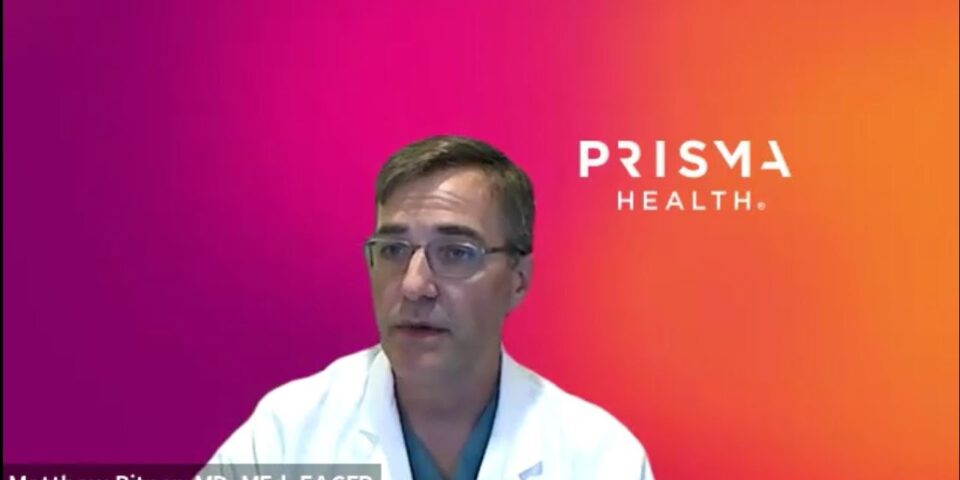The health risks of extreme heat: What you should know
While most of summer has come and gone, the dog days of August are here. With everyday temperatures nearing three digits, sweltering summer sun and high humidity, it’s important to be aware of the potential dangers of time spent outdoors when the temperature just keeps climbing.
In this video, Prisma Health’s own Rebecca Munnerlyn spoke with emergency medicine physician Dr. Matthew Bitner about the health risks of extreme heat and how to stay safe during summer.
“Heat related illnesses are preventable,” said Dr. Bitner. “What we need to talk about here is early recognition and prevention. If you or a loved one shows signs of a heat-related illness, there are some simple steps you can take to prevent heat-related illness or injury.”
While heat rash or sunburn are the most commonly-talked-about side effects of time out in the sun, there are more serious concerns to be aware of, including heat stroke.
Heat stroke involves extremely high body temperatures, with hot, red and notably dry skin. Someone undergoing heat stroke may lose the ability to sweat, have an abnormally fast pulse, muscle cramping, dizziness and nausea and a change in mental status.
“Anybody with a change in mental status who is not sweating is a red flag,” said Dr. Bitner. “Not sweating in the heat is a big problem.”
Dr. Bitner also spoke on what steps to take when someone shows signs of potentially developing an illness or injury as a result of time out in extreme heat, including:
- Providing cool, but not icy cold, water to help replenish hydration
- Get them to a shady spot or inside
- Loosen any tight-fitting garments
- Don’t try to give them soda or other sugary beverages
- Watch for relief of symptoms. If their symptoms continue to worsen or show changes of consciousness, call 911 for immediate medical attention.
Dr. Bitner also spoke on the risks of extreme heat for pregnant women, young children, those with chronic medical conditions and the elderly, all of whom are at a much higher risk of significant health problems in the summer heat. Some medical conditions like heart disease or diabetes or common medications like certain antihistamines, antidepressants, drugs used to lower blood pressure and more can make you more sensitive to heat and more likely to suffer from heat exhaustion or heat stroke. Be sure to ask your doctor and research any medications you take regularly to see if yours is on the list.
Dr. Bitner also spoke in-depth on how to keep kids safe during heat waves and when playing in the sun, what those who work outdoors should know about staying safe in the sun and more.
Find a doctor
Whether you’re looking for a primary care physician or need to see a specialist, we’re here to help with experienced, compassionate care near you.
Find a Doctor
